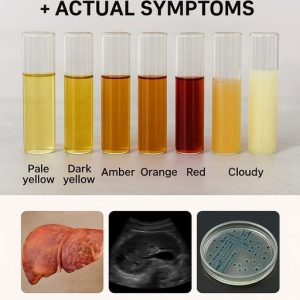The U.S. Supreme Court delivered a major victory for President Donald Trump when it overturned a lower-court injunction that had prevented his administration from ending Temporary Protected Status (TPS) for hundreds of thousands of migrants, most notably Venezuelans. In an 8–1 ruling, with Justice Ketanji Brown Jackson as the sole dissenter, the Court sided with the administration’s argument that the lower court had improperly blocked executive authority over immigration enforcement. U.S. Solicitor General John Sauer argued that TPS decisions fall squarely within the executive branch’s discretion, especially given their connection to foreign-policy concerns. With the injunction removed, the administration can move forward with plans to revoke Biden-era TPS protections and initiate deportations for an estimated 300,000 Venezuelan migrants. The decision underscores a shift toward stronger executive control over immigration policy and sets the stage for more aggressive enforcement by the Department of Homeland Security (DHS) under the Trump administration.
The legal and political backdrop to the case is tied to the complicated TPS history involving Venezuela. TPS was first granted to Venezuelans on March 9, 2021, when then–Secretary of Homeland Security Alejandro Mayorkas determined that conditions in Venezuela—political instability, humanitarian crises, and widespread insecurity—made safe return impossible. Mayorkas argued that allowing Venezuelans already in the United States to stay temporarily served both humanitarian aims and U.S. national interests. In 2022, he extended the 2021 designation by 18 months, continuing protections for individuals covered under that initial approval. This extension acknowledged that Venezuela’s conditions had not improved enough to allow widespread repatriation. The extensions reflected the Biden administration’s broader approach to using TPS as a stabilizing measure for migrants fleeing crisis-ridden countries, particularly in the Western Hemisphere.
On October 3, 2023, Mayorkas took another significant step by not only extending the original 2021 designation again but also issuing a separate 2023 redesignation for Venezuelan TPS. The extension of the 2021 designation carried protections through September 10, 2025. Meanwhile, the 2023 redesignation—valid until April 2, 2025—created two parallel TPS categories for Venezuelans, enabling a larger group of individuals to apply, including those who had arrived after earlier cutoffs. This dual-designation structure expanded eligibility and was intended to address the continuing deterioration of Venezuela’s economic and political conditions. It was an unusual move in TPS policy, effectively establishing two simultaneous legal pathways for Venezuelan migrants, and it became a major issue of controversy once the Trump administration returned and signaled a different direction on immigration policy. The complex structure set the stage for later administrative disputes and legal challenges.
By January 17, 2025, Mayorkas again acted to prolong protections. Based on a January 10 assessment, he announced an additional 18-month extension for the 2023 TPS designation, allowing Venezuelans under either category to reapply for protection through October 2, 2026. Despite making it easier for Venezuelans in both the 2021 and 2023 categories to remain temporarily, Mayorkas notably did not explicitly extend or terminate the 2021 designation, leaving a degree of administrative ambiguity. His decision relied on statutory provisions requiring continual reassessment of country conditions before extending TPS. At this point, DHS maintained that Venezuela still met the humanitarian criteria for protection due to ongoing instability. However, this decision was one of Mayorkas’s final TPS actions before leadership at DHS changed, and it would soon be reversed by the incoming Trump-aligned administration.
When Kristi Noem became Secretary of Homeland Security under President Trump, she moved swiftly to align DHS with the administration’s more restrictive stance on immigration. On January 28, 2025, Noem issued a memo rescinding Mayorkas’s January 10, 2025 decision, effectively reversing the extension of TPS for Venezuelans granted under the 2023 designation. She also concluded that Venezuela no longer met the criteria for TPS and that allowing Venezuelan nationals to remain temporarily in the United States was “contrary to the national interest.” Her memo stated that extraordinary and temporary conditions no longer justified continued protections. A federal district judge, Edward Chen of the Northern District of California, later blocked Noem’s attempt to revoke TPS in March, criticizing the DHS memo as racially charged and lacking factual grounding. Despite this judicial intervention, the policy dispute remained active, and the Supreme Court’s later decision restored the administration’s authority to proceed with TPS termination and enforcement actions.
As deportation operations expanded under the reinstated authority, DHS reported major increases in removals and voluntary departures. By late October 2025, DHS stated that more than 527,000 people had been deported since Trump took office on January 20, 2025. Additionally, 1.6 million individuals had left the United States voluntarily, bringing total departures to roughly 2 million. DHS projected that these numbers would continue rising as the administration invested in more personnel, detention capacity, and enforcement resources. The Supreme Court victory, along with Noem’s policy changes, gave the Trump administration wide latitude to reshape immigration enforcement, focusing heavily on reversing TPS expansions made under the Biden administration. This period marked one of the most dramatic shifts in TPS policy in decades, highlighting the vulnerability of humanitarian protections to administrative changes and the courts’ central role in determining the scope of executive power in immigration law.





